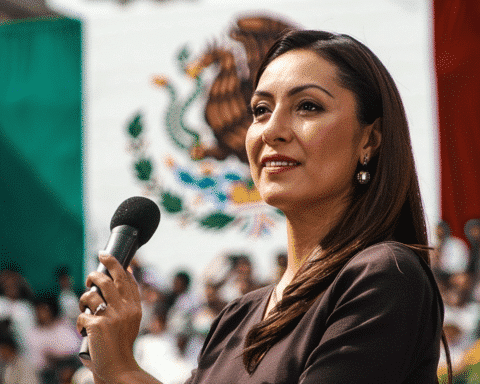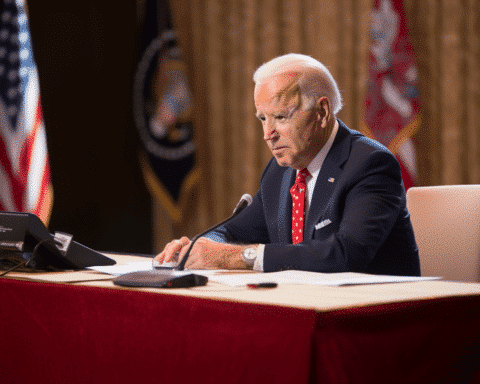Claudia Sheinbaum has made history as the first woman to hold the presidency of Mexico, a significant development in the nation’s political landscape. The transition of presidential power always carries symbolic weight, but this one marks a break from over 200 years of male leadership in the country. The event was met with notable attention inside and outside the congressional chamber, highlighting its importance for many Mexicans.
Sheinbaum’s political career has been marked by significant milestones. She previously served as the mayor of Mexico City, where her leadership brought her national attention. Before that, her background as a climate scientist and student activist shaped her approach to governance. Now, as president, Sheinbaum has reached the pinnacle of her political career, achieving a landmark moment for women in Mexican politics.
Sheinbaum follows in the footsteps of Andrés Manuel López Obrador, her political mentor, who remains highly popular at the end of his presidency. As she takes office, Sheinbaum faces high expectations to continue the policies that defined López Obrador’s tenure. In her first speech as president, she outlined her agenda, closely aligned with the priorities of her predecessor, including poverty reduction, job creation, and wage increases, framed within what she called “Mexican humanism.”
Her focus as president will include healthcare and education, two areas she pledged to improve. She aims to strengthen Mexico’s public healthcare system and make it accessible to all citizens while expanding opportunities in education by creating additional spots in public high schools and universities. Sheinbaum emphasized these as fundamental rights that all Mexicans should have access to, regardless of their socioeconomic status.
However, Sheinbaum also faces serious challenges, particularly in addressing Mexico’s ongoing struggle with cartel-related violence. States like Sinaloa and Chiapas continue to experience high levels of violence, and the internal split within the Sinaloa Cartel has exacerbated the problem. Critics have questioned whether her experience governing Mexico City will effectively translate to managing national security, particularly if she maintains López Obrador’s strategy of avoiding direct confrontation with cartels.
Despite the challenges ahead, Sheinbaum’s supporters remain optimistic. Her commitment to continuing López Obrador’s policies while adding her own leadership style has resonated with many voters. Observers will be watching closely to see how she tackles the various issues facing the country and whether she can balance the need for continuity with the desire for innovation in her administration.
While López Obrador has publicly retired from politics, speculation persists that he may continue to influence the political scene. His long-standing relationship with Sheinbaum suggests that his legacy may endure beyond his presidency. Nonetheless, Sheinbaum has signaled her intention to govern independently, drawing from her own experiences and perspectives as she leads the nation.
Claudia Sheinbaum’s presidency marks a new chapter in Mexican politics. Her rise to the highest office in the country is not only a reflection of her personal dedication to public service but also a symbol of changing times in Mexico. As she begins her term, she faces the challenge of meeting the expectations of a diverse electorate while addressing complex national issues. The coming years will reveal how she navigates these challenges and shapes the future of Mexico.




